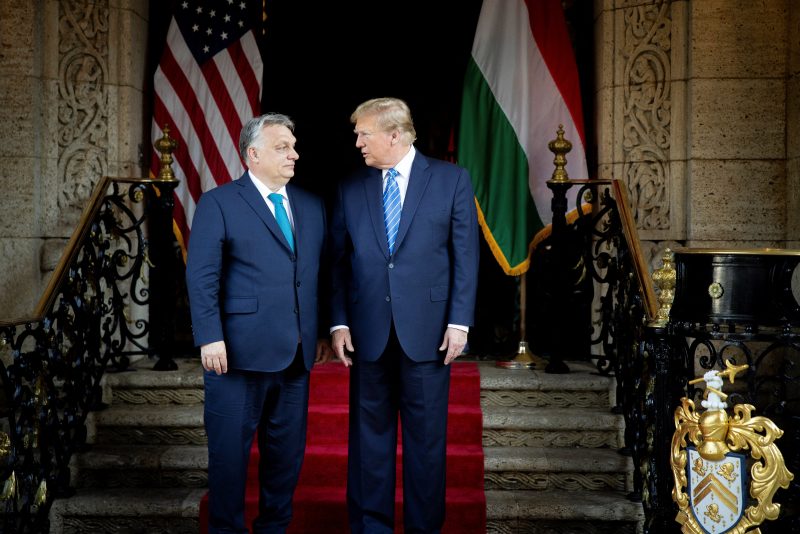In a move that raised eyebrows across the globe, former President Donald Trump met with Hungary’s Prime Minister Viktor Orban, known for his strongman tactics and authoritarian governing style. The meeting between the two leaders sent shockwaves through diplomatic circles, as it marked a significant shift in the relationship between the United States and Hungary.
The meeting, which took place at Trump’s Mar-a-Lago resort in Florida, underscored the former president’s admiration for Orban’s unapologetically nationalist and anti-immigrant policies. Orban, who has been in power since 2010, has been criticized for his crackdown on press freedom, attacks on the judiciary, and efforts to consolidate power in Hungary. Trump’s decision to host Orban at his private club raised concerns about the tacit endorsement of Orban’s autocratic tendencies.
The timing of the meeting is also noteworthy, coming as it does amid rising tensions between the United States and Russia over the conflict in Ukraine. Orban, who has close ties with Russian President Vladimir Putin, has been accused of cozying up to Moscow and undermining Western unity in the face of Russian aggression. By meeting with Orban, Trump appeared to be sending a signal that he aligns himself with leaders who challenge the status quo and reject traditional alliances.
The meeting between Trump and Orban also drew scrutiny for its potential impact on domestic politics in the United States. Trump’s continued popularity among his supporters, coupled with his penchant for embracing controversial figures, has stoked fears that his meeting with Orban could signal a shift towards a more authoritarian style of governance. Critics of the former president see his alliance with Orban as a troubling sign of his willingness to align himself with leaders who flout democratic norms and trample on human rights.
Despite the concerns raised by the meeting, both Trump and Orban appeared unfazed by the criticism. In a joint statement released after their meeting, the two leaders emphasized their shared commitment to defending national sovereignty and fighting against uncontrolled migration. The statement did not address Orban’s authoritarian tendencies or his controversial record on human rights, raising further questions about the true nature of the relationship between the two leaders.
As the dust settles on the meeting between Trump and Orban, one thing is clear: their alliance represents a stark departure from the traditional diplomatic norms of the past. By openly embracing an autocratic leader like Orban, Trump has once again defied expectations and shown that he is willing to challenge the established order in pursuit of his own agenda. The repercussions of this meeting are likely to be felt for years to come, as the world grapples with the consequences of a new era of international relations defined by the actions of strongmen and populists.

